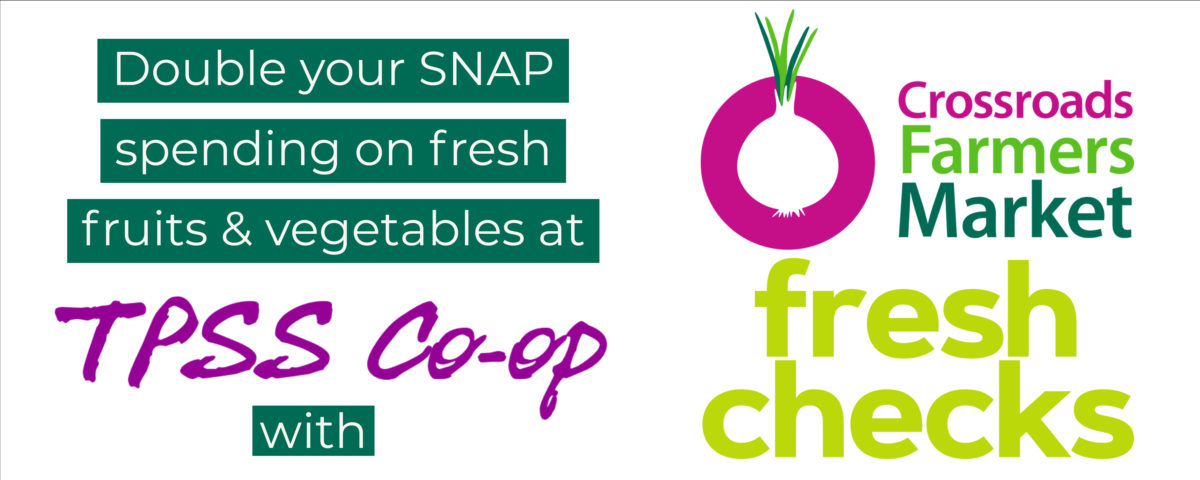Toni Tileva, Community Engagement Associate
Everyone should have access to fresh, locally-grown fruits and vegetables. Over the past 30 years, there have been efforts on the federal level to provide that access for people receiving food assistance. First, the WIC Farmers Market Nutrition Program, serving women, infants, and children, was expanded to include seniors in 2001. Since then, many local organizations have worked hard to provide Supplemental Nutrition Assistance Program (SNAP) recipients with extra funds to purchase fresh produce through programs such as Double-up Food Bucks, Fresh Bucks, Fresh Checks, and Market Match.
Crossroads Community Food Network (CCFN) is our local answer to this effort. The Crossroads Farmers Market, held Wednesdays at the Takoma-Langley crossroads area, was the first market in Maryland to accept federal nutrition benefits like SNAP and WIC, and the first in the country to launch a “double dollar” match on produce spending at the market. Since that launch in 2007, the market has experienced tremendous growth: more than $510,000 in Fresh Checks have been distributed to over 17,000 residents who’ve used them to buy fresh fruits and vegetables from local farmers.
“We were thrilled to partner with the Co-op because it meant they could offer the Fresh Checks program seven days a week, and not just one,” says Christie Balch of CCFN. SNAP shoppers can purchase half-price produce at the Co-op through this program, increasing access to not only fresh but affordable and local food. In addition, the Co-op will soon be the fourth grocery store in the entire state of Maryland to offer online grocery shopping using SNAP benefits. While we await one last USDA approval, we already allow people to place orders through the online system and pay with SNAP when they pick up their orders.
The program is in its pilot phase at the moment, but CCFN and the Co-op would love to make it permanent. By making fresh, healthy food more accessible, the Co-op and CCFN want to cultivate food security and minimize diet-related diseases in our community. CCFN stated, “We acknowledge the deep-rooted inequities that exist in our local food system and the resulting poor health outcomes that disproportionately affect immigrants, people of color, and those from lower socioeconomic backgrounds. We believe those who have been traditionally excluded should have the power to define and control their own culturally-appropriate food policies, processes, and activities.”
“I have been so impressed with the Co-op’s enthusiasm for launching this program in the midst of a pandemic and the shifting of their business model. It really shows their dedication to food justice,” says Balch.

